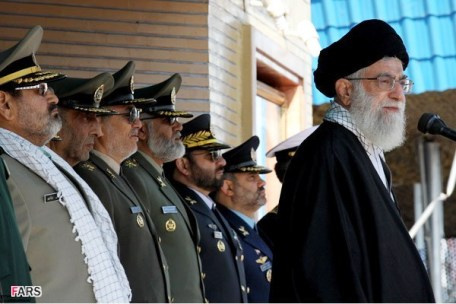Enter response package

By: Mehdi Mohammadi
About three months ago, the Americans started to prepare a new “pressure package” on Iran. At the time they had two assumptions in mind: firstly, Iran would quickly revolt under this pressure and it would face internal political and social turmoil. Secondly, Iran would not be capable of a response by any means. Three separate cases of Iran's human rights record, its nuclear program and terrorism were integrated into a package so that the Americans could ensure the outcome of their presumptions.
Arguably, the ultimate goal of all external pressure on Iran is to provoke protests in Iran. Asked ‘when will you be convinced that sanctions on Iran have been effective?’ Stephen Hadley, President Bush’s advisor on national security affairs replied ‘when our desired political and social developments in Iran occur’.
Signals sent from Iranian politics about three months ago, along with naive evaluations of some European embassies in Iran – the UK embassy in particular, gave Obama the impression that Iran is facing another internal conflict after the 2009 post-election protests. Therefore, he decided that it was time to increase external pressure on Iran in the hope that it will spark social conflict in the country. As a result, the Americans are constantly observing the dynamics of Iran’s internal environment, by evaluating which they will determine in what way they would increase pressure on Iran.
Nonetheless, this is only one aspect of the problem. The other is US’ assumption that by imposing yet another hefty “pressure package” on Iran, while securing the backing of other international players, it will trigger a sort of “management crisis” in the country; hoping that inevitably this crisis will lead to diminishing Iranian role in the Middle East, where the United States has been facing strategic challenges. Consequently, the Americans hope that by imposing this pressure on Iran they will be able to buy a little extra time to evaluate whether they can gain control over Iran and the region.
This is not the whole picture. The “pressure package” indicates a second American assumption that Iran will not be capable of responding to this pressure. Tehran would be unable to prepare a “response package” due to the following reasons:
Firstly, the Islamic Republic would not be able to develop a response, as it would face an internal strife, among the decision-making elite and would foil any consensus on retaliatory measures; i.e. Iran would be fettered by a ‘responding crisis’. Secondly, the Americans assumed that Iran would give in under these pressures and will engage in negotiations. Two corrupted political currents in Iran gave this false impression.
Yet, the response that the Americans are facing is in contrast to what they were hoping for. Instead of fright, Iranians are responding with fight, and instead of being passive Iran has employed a proactive strategy of response. Iran has indeed taught the Americans a lesson in the region and beyond. Possibly the last thing Americans were expecting from Iran was its swift response by preparing a “pressure package” of its own. Iran has now mustered its political, media, diplomatic and military resources to impose an unprecedented pressure on America.
For Years Americans have known that Iran has unique regional and trans-regional capabilities that for reasons have been left untapped. Recent evidence show that American pressure on Iran has caused some of these capabilities to be activated and operational projects have been defined based on them.
Bringing down the American drone RQ-170 by Iran was such an operation. It will take CIA years to begin to understand its implications. Nearly two weeks have passed since December the 4th, when America lost control over its drone, and they are still in great astonishment over their loss. The best-case scenario for Americans will be to completely reconsider their intelligence tactics on Iran, which will cost them billions of dollars. But the real implication will be revealed when Iran manages to disassemble the drone and tap into its technology. For Americans this will be a tragedy that they will have to face soon.
The act of bringing down the American UAV drone is not to be considered in isolation, but as part of a grander scheme of strategies. Understandably the Americans cannot imagine how Iran is preparing a “pressure package” for America similarly to how Americans could not imagine how Iran could manage to bring down a high-tech US drone; and the next steps will be even direr. The American government has started a game that it will not finish on its own. They have started an untimely opposition while their vulnerability in the region is unprecedented. Undoubtedly an intelligent country like Iran can recognize Washington’s too many weaknesses.

